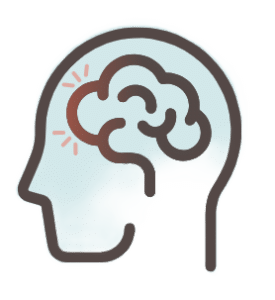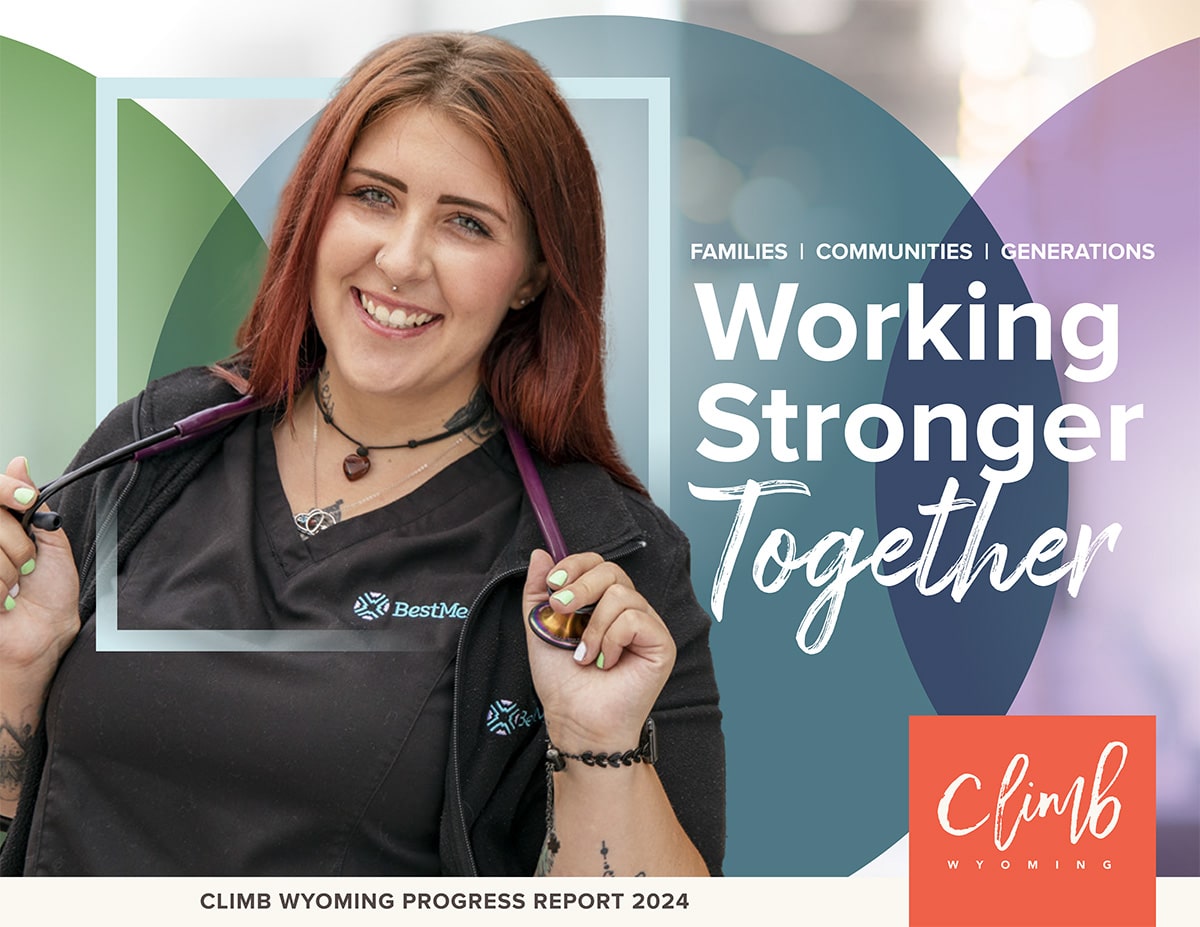At Climb, Jodi didn’t just push past her comfort zone, she leaped out of it feet first.
After suffering from severe social anxiety that kept her out of work and on disability for more than 20 years, Jodi bravely walked through Climb’s doors two years ago feeling determined…and very nervous.
The first person Jodi met at Climb was our mental health provider. “She was so easy to talk to,” Jodi recalls. “She leaned in and really wanted to hear my story.”
Once Jodi’s Office Careers training in the Teton Area started, her group’s first exercise was to make and share posters about their kids, an exercise designed to build connections with the group and work on professional presentation skills. “I was so terrified to talk in front of people, but everyone gave me a lot of positive encouragement,” Jodi says.
These structured group experiences, along with individual therapy sessions, help moms like Jodi strengthen and repair executive functioning skills that are often damaged from the toxic impacts poverty can have on brain functioning.
“I have tools for when I get overwhelmed, but I don’t notice my anxiety at work. I speak up in meetings! I’ve done a complete 180-degree turn.”
-Jodi, Climb Wyoming Graduate
The job interview phase presented another opportunity for Jodi to learn and practice new skills. In the safety of Climb’s intentional, therapeutic structure, staff guided her through preparation for different interview types—one-on-one, panel, and phone—so she could grow her confidence.
Jodi accepted a position as the Administrative Assistant for Physician’s Services at St. John’s Health in Jackson, where she supports more than 40 health providers by coordinating meetings, staff recruitment, hospital visits, and more.
“Before Climb, it was hard to even go to the grocery store, so going out and getting a job felt totally impossible,” says Jodi. “Now it’s really different. I like talking to my coworkers.”
“I have tools for when I get overwhelmed, but I don’t notice my anxiety at work. I speak up in meetings! I’ve done a complete 180-degree turn.”
Poverty’s Impact on the Brain
The toxic stress of poverty disrupts the brain’s pre-frontal cortex, a command center that controls critical executive functioning skills required for successful employment:

 3 Min Read
3 Min Read





